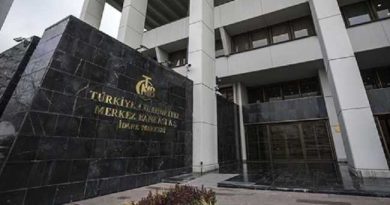Turkish Election Campaign Pushes Turkey’s EU Bid in the Background
Turkey’s EU bid has been largely absent from the campaign ahead of Sunday’s general elections, mirroring a dwindling Turkish confidence in the bloc as membership talks linger at a standstill.
A recent survey by the research institute TESEV showed that 69 percent of Turks support their country’s endeavour to join the European Union, but only 36 percent of them believe it will happen in the next 10 years.
The survey, conducted among 1,000 people, revealed that 30 percent of Turks believe Turkey would never be allowed into the 27-nation bloc, while 21 percent said “I don’t know” when asked whether it is ever possible or not.
The data fail to provide a comfortable environment for political parties to campaign in favor of Turkey’s bid to join the EU.
The issue of the EU has been totally absent in Prime Minister Recep Tayyip Erdogan’s campaign speeches. It only appears on the 151st sheet of the 160 pages long election programme of his Islamist rooted Justice and Development Party (AKP).
AKP, a liberal offshoot of a banned Islamist movement, reaffirms its commitment to full EU membership in the programme, but strongly denounces “unfair and unfounded opposition” of certain EU countries to Turkey’s bid.
Turkey opened accession talks with the EU in 2005. However, out of the 35 policy chapters that candidate countries must negotiate,
Turkey has opened talks only on 13.
The main opposition Republican People’s Party (CHP), which has supported Turkey’s EU membership without much joy, is not different from AKP as it devotes only one page to European issues in its 136 pages long programme.
AKP’s Egemen Bagis, the minister in charge of negotiations with the EU told AFP that the entire programme of AKP, from its aim to strengthen democracy and economy, to its emphasis on diplomacy and environmental issues reflects the European ambitions of his party.
However, he still admits that the Turkish electorate is not buying the EU issue any more. According to Bagis, this does not prevent the AKP following the European path, but only draws it to proceed on that way quietly.
“It’s because the EU has lost credibility in Turkey,” he said.
Relations with the EU are at an impasse as eight chapters remain frozen due to a sanction to Turkey’s refusal to open its ports to Greek Cypriot vessels under a trade pact with the EU, with France blocking several others in line with its vocal opposition to Turkey’s accession.
“The EU has a credibility problem and the main reason for this problem is not only not opening negotiation chapters, but also that we are not getting enough cooperation in the fight against terrorism from our EU allies. And we are still having a double standard on the visa situation,” Bagis said.
Turkey calls on the EU to liberalise its visa regime for Turkish citizens.
Turkey had joined the EU customs union in 1995, but Turkish businessmen still found it difficult to get EU visas and could not, for example, attend business fairs to sell goods their companies made, Turkey complains.
When asked whether the government is going to stick to its EU pledge, Cengiz Aktar, an EU expert, said he doubted that.
“I presume Turkey will be more introvert in coming years and look after its own economic, political and social issues, rather than focusing on external matters,” Aktar said.
The debate on rewriting Turkey’s constitution, a legacy of a 1980 military coup, will overshadow other issues after the elections, according to Aktar. The EU issues will wait, he said.
9 June 2011





